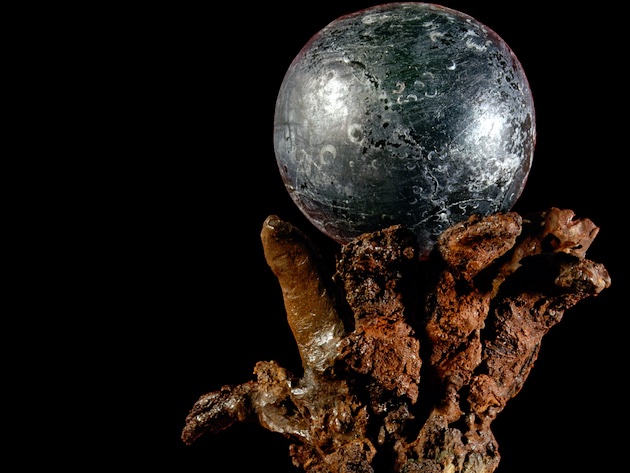
Having now become an unmissable and consolidated event, the series of meetings - with free entry - on history, archeology and art at the Argentina Theater, entitled Light on archaeology, also for the 2025 edition is characterized by an in-depth analysis of the themes, from a literary point of view , philosophical, journalistic, which underlines the cultural links between past and present.
This year's themes are "Religion, justice, destiny", which act as a common thread throughout the seven meetings of this XI edition. In fact, at the centre of the conferences we find the public spaces, the political dimension, the mythical universe, and how these alternate with the spaces of memory and identity to bring out how Rome and the classical world are today more than ever custodians of the beauty of ancient world.
We also remember the special event with a preview scheduled for Sunday 10 November at 11.00, dedicated to Julius Caesar and the curtain that closed with his assassination.
PREVIEW 10 November 2024 – free entry with reservations required
Luciano Canfora, University of Bari
Orazio Licandro, University of Catania
Caesar must die
Claudio Strinati, contributions on art history
Michelangelo Buonarroti, Brutus (bust)
THE MEETINGS
January 19th
Maurizio Bettini, University of Siena
Cicero, Antigone and “the oxen yokers”
Giovannella Cresci, Ca' Foscari University of Venice
Antony at Caesar's funeral: new political communication strategies
Annarosa Mattei, Writer
Christina of Sweden, the myth of royalty and the cult of the ancient
Claudio Strinati, contributions on art history
Gian Lorenzo Bernini, Tomb of Matilde of Canossa, St. Peter's
January 26th
Giovanni Brizzi, University of Bologna
Imperium. Power in Rome
Paolo Carafa, University of Rome La Sapienza
The city is reborn from the ashes. The face of Rome from Nero to Domitian
Monica Centanni, Iuav University of Venice
Augustus and the rex nemorensis: religious politics and political propaganda
Claudio Strinati, contributions on art history
Alma-Tadema, Claudius proclaimed emperor (1867)
February 2
Alessandro D'Alessio, Director of the archaeological park of Ostia antica
Spaces of the gods, spaces of men. Forms, functions and landscape(s) in the large Italian terraced sanctuaries
Francesca Rohr, Ca' Foscari University of Venice
The sons of the enemy, new instruments of Augustus' government
Dacia Maraini, Writer
Women of character in the early Christian era
Claudio Strinati, contributions on art history
Poussin, Et in Arcadia ego
February 16
Ivano Dionigi, University of Bologna
Seneca and the destiny of man
Massimo Osanna, General Director of MIC Museums
The hidden world of Pompeii
Livio Zerbini, University of Ferrara
Caligula: madness in power
Aldo Cazzullo, Journalist and Writer
An enlargement on the relationship between Virgil and Dante
Claudio Strinati, contributions on art history
Gustave Doré, Dante and Virgil in the ninth circle
March 9
Umberto Roberto, University of Naples, “Federico II”
In defense of a world: Diocletian's strenuous fight for the salvation of the Roman Empire
Lucrezia Spera, University of Rome Tor Vergata
The great imperial construction sites and the birth of Christian Rome
Fabio Pierangeli, University of Rome Tor Vergata
Candor, spirituality, justice. Cues from Pirandello
Claudio Strinati, contributions on art history
The frescoes of the Oratory of San Silvestro ai Santi Quattro Coronati in Rome
March 23
Massimiliano Ghilardi, Archaeologist, Associate Director of the National Institute of Roman Studies
The Jubilee of 1600 and the rediscovery of early Christian antiquities
Arnaldo Marcone, University of Roma Tre
Julian, a late ancient emperor
Angela Scilimati, Art Historian
Art history contribution: “Because I was sacrilegious and now I am a mystic. Salvador Dalì and the search for immortality through art”
Paolo Di Paolo, Writer
The ideal place to see if everything ends. Vidal, Fellini, eternity in Rome
Claudio Strinati, contributions on art history
Pietro da Cortona, The Rape of the Sabine Women (Capitoline Museums, Rome)
March 30th
Mariarosaria Barbera, former State Superintendent and Director of the archaeological park of Ostia antica
Women and war violence. A look at the ancient age
Massimo Cacciari, Philosopher, Essayist, Politician
Antigone today
Claudio Strinati, contributions on art history
the Deposition of Rosso Fiorentino in Volterra
Photo: official poster of the event
Informations
Dal 10 novembre 2024 al 30 marzo 2025
Anteprima 10 novembre 2024 ore 11.00
Ingresso libero fino esaurimento posti - Prenotazione obbligatoria > www.eventbrite.it
Incontri 19 e 26 gennaio, 2 e 16 febbraio, 9, 23 e 30 marzo 2025 ore 11.00
 Condividi
Condividi











































